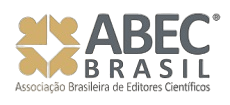Sustainability-oriented innovation from the perspective of dynamic capabilities: a study on projects of a company that operates in the energy industry
DOI:
https://doi.org/10.36661/2596-142X.2024v6n1.14491Keywords:
Microfoundations, Dynamic Capabilities, Sustainability - Oriented - Innovation, Brazilian Electricity SectorAbstract
This study aims to develop a framework that integrates Dynamic Capabilities (CD) from its micro-foundations with the Sustainability-Oriented Innovation (SOI) activities of operational optimization (OO), organizational transformation (OT), and systems building (SB), refining it through a case study. The empirical research was developed through a case study of four projects of a company operating in the Brazilian electricity sector. The data collection instruments adopted were semi-structured interviews and document analysis. As a result, the micro-foundations that most strongly influence SOI activities are detection (partnership with stakeholders, allocating resources and investments, and building trust) identified in all projects. Those with a weak influence include value chain analysis (seizure), sustainable impact, and generation of new knowledge (reconfiguration), especially in OO activities. From the refinement of the framework, it was possible to present ten propositions (one sensing, six seizing, and three reconfiguration), providing practical insights and areas for future investigation. The research also guides project managers on how micro-foundations influence innovation activities toward an ESG (Environmental, Social, and Governance) culture. Furthermore, the framework can be used as a management tool to guide decision-making regarding the organization's future projects, targeting sustainability.
Downloads
Downloads
Published
Issue
Section
License
-
O(s) autor(es) autoriza(m) a publicação do artigo na revista;
-
O(s) autor(es) atesta (m) que a contribuição é original e inédita e que não está em processo de avaliação em outra(s) revista(s);
-
A revista não se responsabiliza pelas opiniões, ideias e conceitos emitidos nos textos, por serem de inteira responsabilidade de seu(s) autor(es);
-
É reservado aos editores o direito de proceder ajustes textuais e de adequação do artigo às normas da publicação;
-
Autores mantêm os direitos autorais e concedem à revista o direito de primeira publicação, com o trabalho simultaneamente licenciado sob a Creative Commons Atribuição 4.0 Não Adaptada, que permite o compartilhamento do trabalho com reconhecimento da autoria e publicação inicial nesta revista














